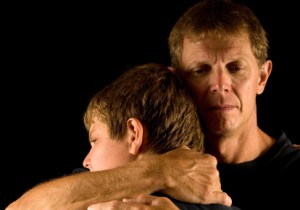
Things are going to different... better for all of us.
Last week I stuck it to parents who, wittingly or un, permit bullying at home. If I weren’t such an uncompromising child advocate this might be where I apologize for offending. Sorry. No regrets about what I wrote. It was the truth. It was helpful. And it’s totally necessary for us to understand that love for our kids can’t ever be so blind that it keeps us from giving them a needed course correction.
For the record, more people read, tweeted and commented on that blog than anything I’ve cranked out in the past 2 years. Lots of thumbs up and to my knowledge, not a single parent bent out of shape. In fact one mom asked when I’d be serving my tips on “What to do if my kid is a bully?” Thanks for asking. I’m getting there.
Before I do I’ve gotta say I’m not keen on labels. There’s a huge difference between “My kid’s behavior is sometime/often aggressive, controlling and insensitive to the feelings of others” and “My kid’s a bully.” It may seem like PC BS semantics but it’s more than that. When you label a child you add a mantra to that kid’s internal monologue. Tell him he’s “bad,” tell her she’s a “bitch,” tell them they’re “worthless” and their young psyches start agreeing. Without meaning to you’re pushing them down the path you were trying to yank them off. You also provide them with excuses to continue misbehaving. “I can’t help it. I’m just a bad kid.”
So please don’t label your kid with “bully” or any other insult, even if (s)he’s acting that way.
Tips for changing bullying behavior.
1. Acknowledge the truth — When your child engages in behavior that’s meant to degrade or intimidate anyone (including you), see it for what it is. Name it. “My child is acting like a bully”.
2. Jump on it — Tell your kid exactly why what (s)he did is not OK. “Cruel’s not cool! Not at school. Not online. Not in this family. Not ever. Consider this a warning. The next time you talk to us that way, there will be a consequence.” And when “next time” happens follow up with the consequence. Don’t apologize. Don’t negotiate. And do not feel guilty! Threatening empty action is not only ineffective parenting, it also undermines your leadership and accountability. On top of that, it makes you look like a wimp in your child’s eyes. No way to earn the respect you say you want.
3. Get it on the record — At a family meeting discuss the ways each person shows respect and disrespect. Talk about a need for change in the direction of more respect & cooperation from everyone. Together create a set of agreements. The first one should be: In this family, we will always treat each other with respect. Parents and children are not equals in the family. Obviously we don’t share the same rights and privileges. But when it comes to following the Respect Rule, we are all equal.
Agree on consequences for not keeping the #1 rule. NOTE: Consequences need to matter to the child. “No TV” is meaningless if the kid’s got 10 other ways to entertain herself, including a laptop where she can download the show you told her she can’t watch.
4. Hold yourself accountable — Children repeatedly engage in unacceptable behavior (whining, cursing, silent treatment, hitting, door-slamming, screaming, non-cooperation, etc.) because parents let them get away with it and there is a payoff. If your son or daughter consistently acts like a bully at home, it is because you’ve allowed it. What you permit you promote.
NOTE: Hold yourself and your partner accountable for acting like a bully to each other and/or to the kids. Commit yourself to making changes in your own behavior.
5. Explore your typical response to your child’s most uncooperative behavior — If what you usually do hasn’t corrected the behavior yet, it’s not going to. If you need help regaining your leadership role in the family, read a parenting book, listen to a parenting podcast, take a parenting class, invest in a session with a licensed Marriage and Family Therapist or a Parenting Coach. In other words, if you need help, get it.
6. Be prepared for serious push-back — Kids who’ve been getting their own way for years are not suddenly going to become model team players just because you’ve gotten a backbone transplant. They will test to see if you mean business. Hang tough and show them you do.















